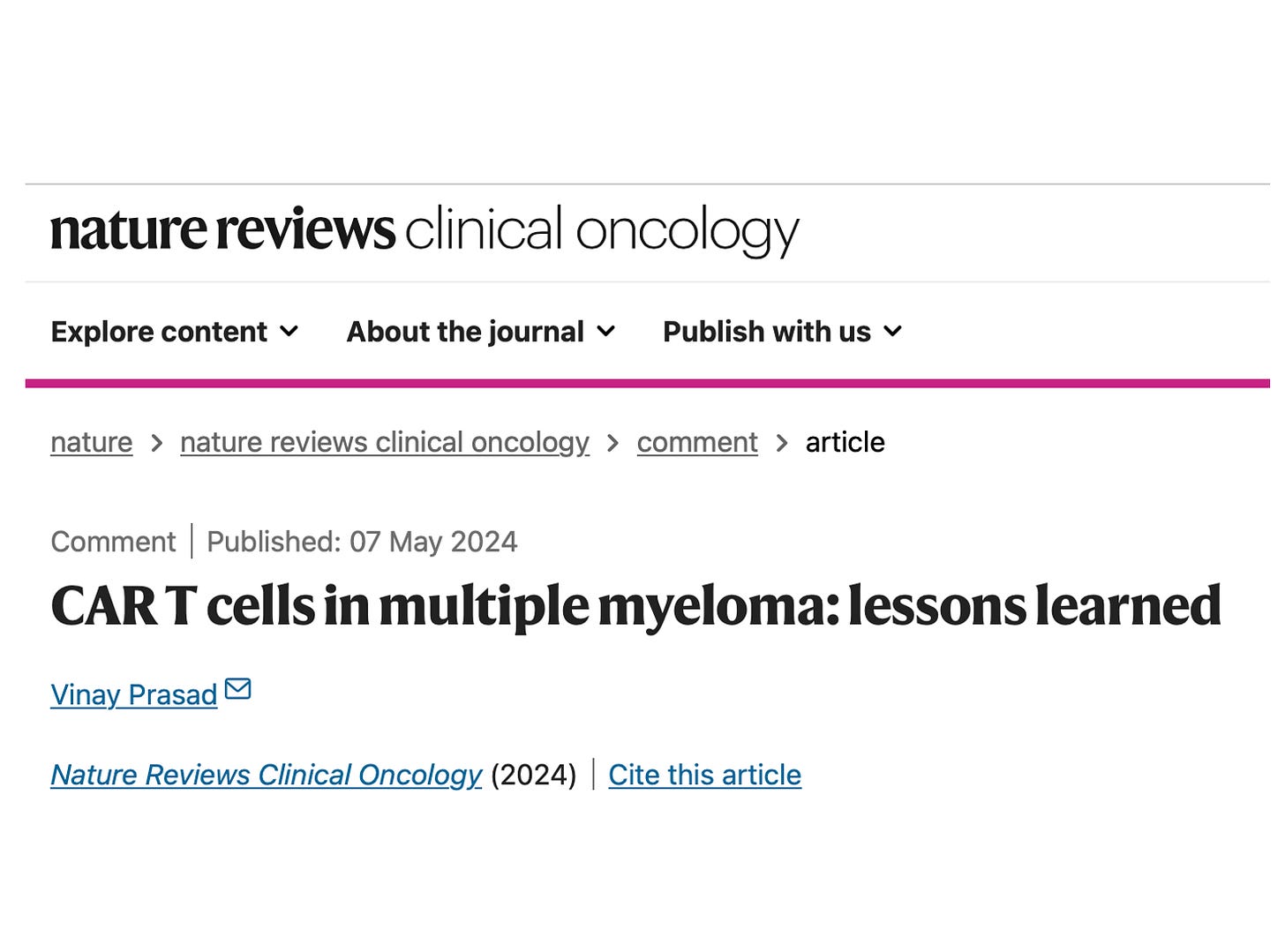CAR T-Cells in multiple myeloma, 8 lessons for now and years to come...
Vinay Prasad's takes on the ongoing development of CAR-T cell therapy in multiple myeloma.
In the evolving landscape of multiple myeloma treatment, CAR-T cell therapies could stand at a pivotal crossroad, presenting both promises and limitations. Vinay Prasad's insightful commentary in Nature Reviews Clinical Oncology delves into the contentious issue of whether CAR-T cells should be deployed earlier in the treatment sequence for relapsed/refractory multiple myeloma (RRMM).
Despite FDA advisory panels endorsing broader use after 1-2 prior therapies, critical concerns persist, notably about the therapies’ actual benefits on overall survival (OS) and safety.
Recent FDA discussions highlighted by Prasad scrutinize the approval of two specific CAR T products, ciltacabtagene autoleucel and idecabtagene vicleucel, extending their application from patients heavily pre-treated to those earlier in their disease course. Yet, trial data analysis reveal:
no definitive OS advantage
suboptimal control arms
problematic use or interpretation of crossover
red flags over possible increase in short-term mortality and substantial adverse events, including financial toxicity.
Prasad highlight fundamental differences in the role of CAR-T cell therapy in multiple myeloma – “not a curative treatment in RRMM” - compared to acute leukemia or B-cell lymphomas where it can achieve such result. These issues call into question not just the timing but the very metrics by which these therapies are evaluated, pushing for a broader reevaluation of how clinical benefits are measured beyond mere progression-free survival.
Prasad’s analysis of CAR-T cells’ role in RRMM serves as a critical checkpoint, urging cautious optimism and a redefined approach to assessing their value and place in cancer care.
+ access to the full paper here.





